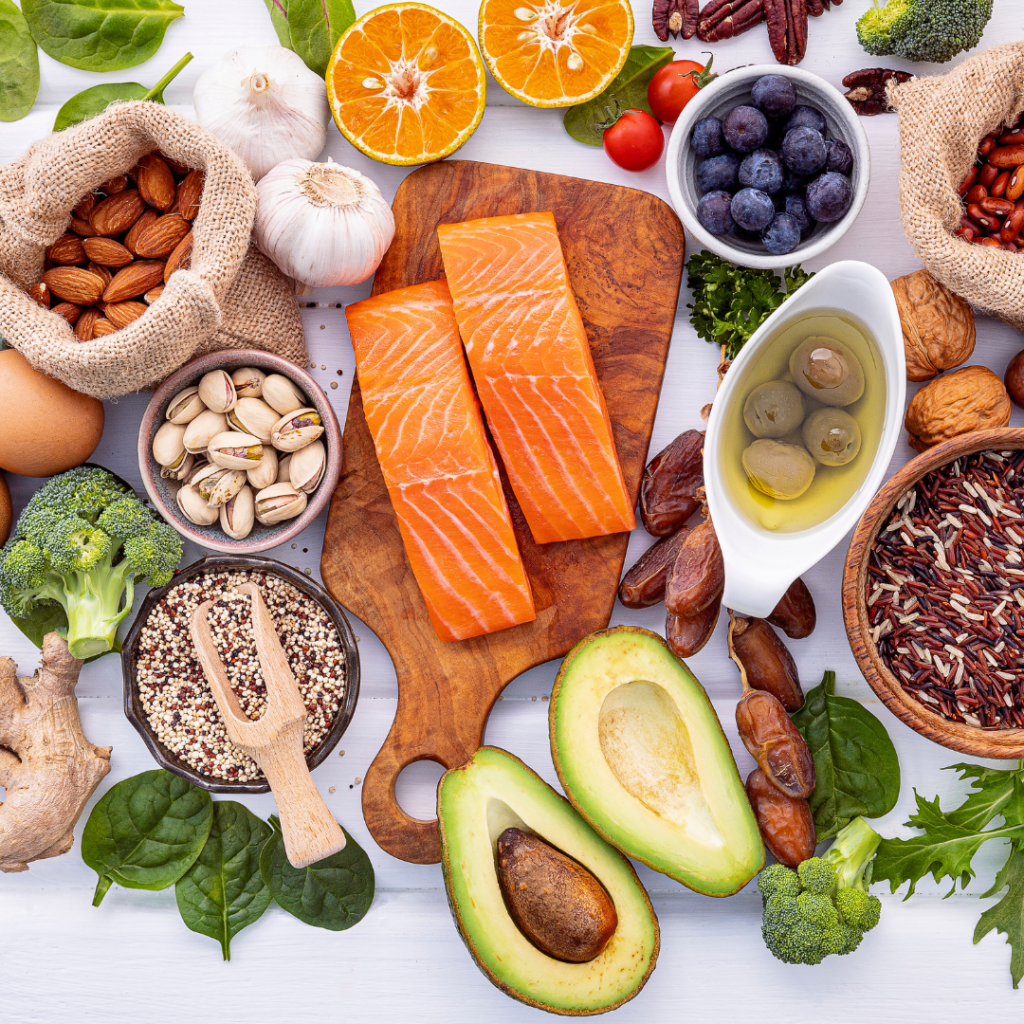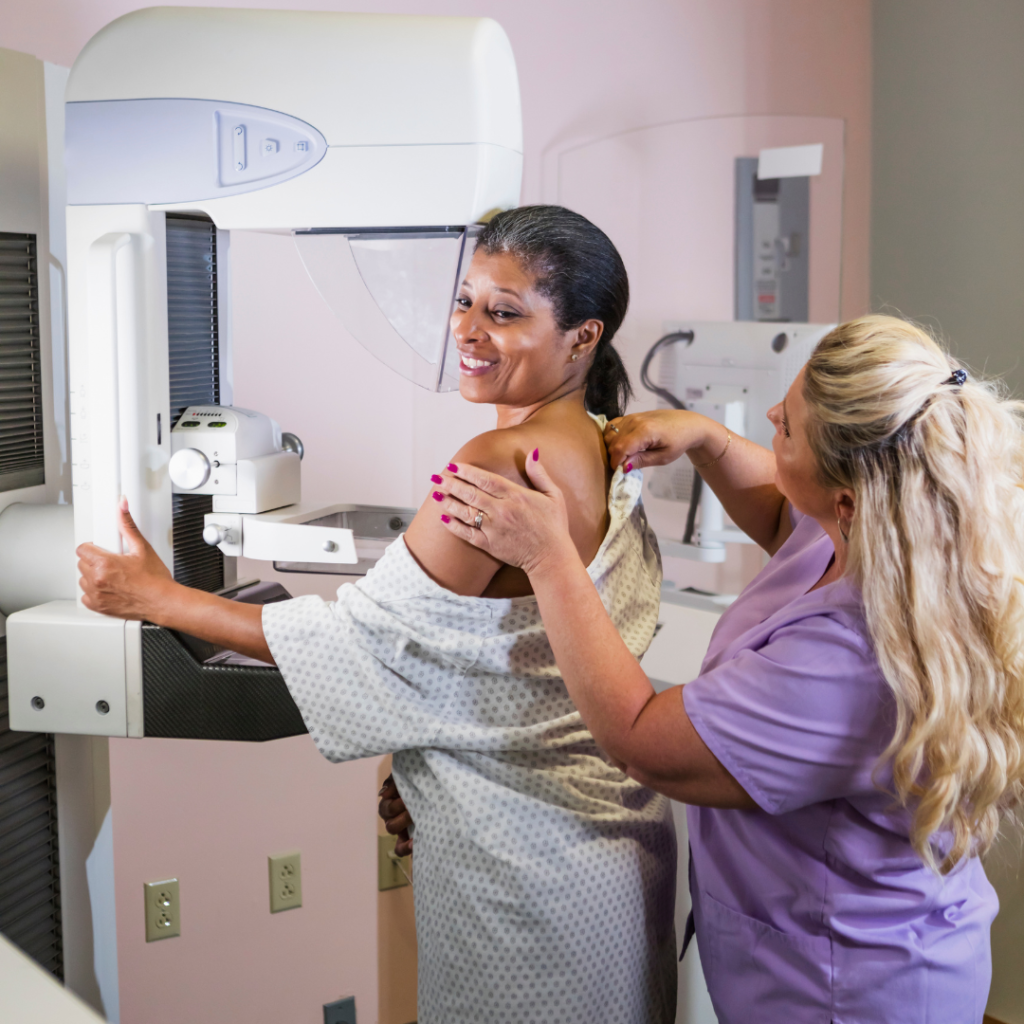By Tia Cristy
It’s national Ta-Ta Cancer Awareness Month and maintaining breast health is vital for every human’s overall well-being. It doesn’t matter whether you’re a woman, man, mom, or momma-to-be, caring for your breast tissue is vital. Perhaps, you are looking to reduce your risk of breast cancer or simply looking to promote healthy tissue, you should know there are simple steps you can take to ensure your breasts stay healthy.
Here are five essential tips to help you prioritize your breast health.
1. Perform Regular Self-Examinations
One of the simplest yet most effective ways to maintain breast health is through regular self-examinations. Checking your breasts for any unusual lumps, changes in size, shape, or skin texture can help you catch potential issues early. For women, the best time to perform a self-exam is a few days after your menstrual cycle when breasts are least likely to be swollen or tender.
How to do a self-exam: Stand in front of a mirror with your arms at your sides, then raise your arms above your head. Look for any visible changes in your breasts, such as dimpling or puckering. Use the pads of your fingers to feel for any unusual lumps or thickening, moving in a circular pattern from the outside to the center.

Not all bumps and lumps are cancerous, but you need a professional to determine what is going on. Cysts can be hereditary, or they may develop during natural hormonal changes during menstrual cycles. Another cause for cysts is excess estrogen.
A natural remedy for painful cysts is to place leaves of raw cabbage on your breasts for about eight hours a day for several days. Cabbage relieves pain and shrinks cysts fairly quickly (It’s also a good option for mothers who are trying to dry up their milk when finished with breast-feeding).
2. Maintain a Healthy Weight and Exercise Regularly
Excess body fat, particularly after menopause, has unfortunately been linked to an increased risk of breast cancer. So that means maintaining a healthy weight through diet and regular exercise not only improves your general health but can also significantly reduce your risk of developing breast cancer.

Exercise tips: Aim for at least 150 minutes of moderate aerobic activity or 75 minutes of vigorous activity each week. Incorporate strength training exercises at least two days a week, as they help regulate hormones and keep your weight in check, which is beneficial for breast health.
3. Eat a Balanced Diet Rich in Antioxidants
We’ve all heard, you are what you eat, and why is that? Because what you eat plays a crucial role in your overall health, including breast health. A diet high in fruits, vegetables, and whole grains provides essential nutrients that can help protect your breast tissue from damage. Antioxidant-rich foods like berries, green leafy vegetables, and nuts help neutralize those nasty free radicals, which eventually lead to damaged cells and contribute to cancer development.
Breast-friendly foods: Include more fiber-rich foods like beans, lentils, and whole grains, and reduce your intake of processed meats, alcohol, and sugary snacks. It’s believed that specifically, omega-3-rich foods such as salmon and flaxseed may also have protective benefits for breast health.

4. Limit Alcohol Consumption
A drink every now and again might not hurt many out there, but multiple studies have shown a clear connection between regular alcohol consumption and an increased risk of breast cancer. The more alcohol you drink, the higher your risk. That being said, it’s important to limit your alcohol intake to reduce this risk especially if breast cancer runs in your family line.
How much is safe: According to the American Cancer Society, women should limit alcohol consumption to no more than one drink per day and only two drinks per day for men. Women have fewer alcohol dehydrogenase enzymes in their bodies, which metabolize the alcohol before it’s absorbed into the blood, so they cannot tolerate the same amount of alcohol as men.
5. Schedule Regular Mammograms and Doctor Visits
Routine mammograms are essential for early detection of breast cancer. Women should begin scheduling annual mammograms according to the guidelines set forth by health professionals, working hard to keep humans healthy. Typically, screenings should start between the ages of 40 and 50, depending on personal risk factors. Men should visit their primary doctor as soon as possible if they feel any abnormalities in their breast tissue.

When to get screened: If you have a family history of breast cancer or other risk factors, discuss with your doctor about starting screenings earlier. In addition to mammograms, regular clinical breast exams by a healthcare professional can help detect any abnormalities that may not be noticeable through self-examination.
In conclusion, your breast health is an integral part of your overall health. By taking preventive measures like performing self-exams, eating a healthy diet, maintaining an active lifestyle, and getting regular screenings, you can stay proactive in detecting any potential issues early. Remember, early detection saves lives, so make breast health a priority!





